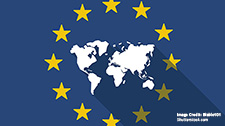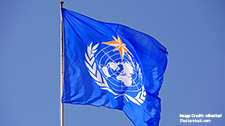Western Policy

The population giants and emerging regional hegemons China and India are located in Eurasia, as are a large proportion of the world’s most economically dynamic and politically confident nations. If such a remarkable set of figures is in itself capable to generate much political and geopolitical friction, add to that the speed and intensity of recent socio-economic changes affecting all countries in the region, and there exists a plethora of multifarious and delicate issues that—if not dealt with in an intelligent, well-informed manner—can threaten global stability.
Covering a vast geographical territory—stretching from Turkey and the Caucasus, through Central Asia, all the way to China—this research program focuses on major issues affecting the foreign policy of countries in the region, including economic and social development, traditional and non-traditional regional security, as well as governance and democracy. It also analyzes the military, political, and economic relations between the states of the region and important geopolitical actors such as the United States, the European Union, and a number of nation-states in the Middle East and South Asia. ISDP’s research on foreign policies in Eurasia intends to provide critical analysis, detailed evaluation and pragmatic recommendations to state, non-profit, and private sector actors.
Related News
Related Publications
-
The EU’s Response to Pahalgam: A Missed Opportunity
The recent terrorist attack in Pahalgam was not just another act of violence—it was a chilling reminder of the brutal threats that still plague the Indian sub-continent. Yet, while many […]
-
Fostering Order In The Indo-Pacific: What the EU Can Learn From and Do With Australia, India, Japan, South Korea, and Vietnam
Executive Summary One of the most critical challenges of this century is fostering order in the Indo-Pacific. (Dis)order in this space will significantly affect the international order. Not only […]
-
Repurposing the United Nations to Address the Climate Crisis on the Tibetan Plateau
The futures of people along China’s western frontier changed dramatically with the annexation of Xinjiang in 1949 and Tibet in 1950. When Communist China emerged from decades of isolation in […]
-
Report of the Webinar: Climate Crisis in Tibet – Part I: CCP’s Tibet Takeover: Wither Global Climate Action?
This report is an outcome of the webinar titled “Climate Crisis in Tibet”, organized by the Stockholm Center for South Asian and Indo-Pacific Affairs (SCSA-IPA) at the Institute for Security […]
-
Can India Advance Peace in Ukraine?
KEY TAKEAWAYS India has carefully positioned itself as a peacemaker and facilitator between Russia and Ukraine. Its approach reflects a broader geopolitical balancing act and strategic autonomy. To play an […]



